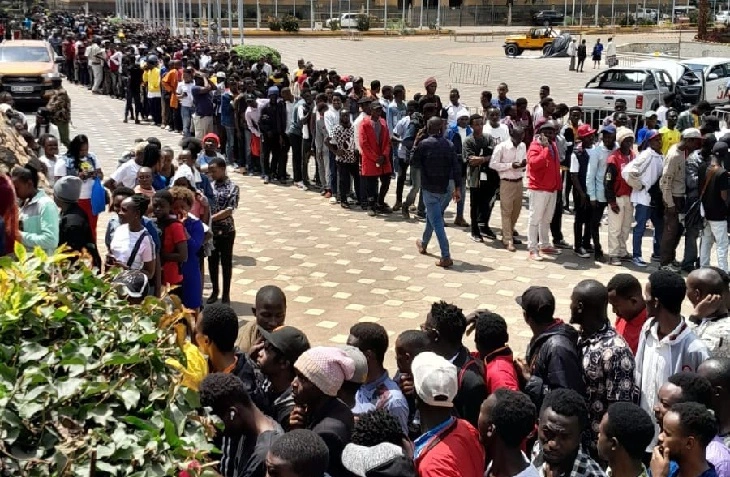The Worldcoin project, which was launched globally, witnessed a surge in interest from Kenyans, with over 350,000 individuals registering. The registration process involves scanning one’s eyeballs through an orb, leading to the creation of a digital identity called World ID.
Despite data security and privacy concerns both locally and internationally, Kenyans enthusiastically flocked to registration centers in Nairobi. At the moment, these worldcoin tokens are valued at Ksh.8,256. With one token trading at Ksh.344.90.

However, the Kenyan government intervened and halted all activities associated with the cryptocurrency project due to data concerns.
Worldcoin maintains that user data is secure. The crypto project provides users with the option to delete or store their data in encrypted form.
According to Worldcoin’s website, the project does not collect personal data such as names, phone numbers, and addresses from users. The company’s primary objective is to generate a unique iris code from the images collected by the Orb. These images are deleted by default once the iris code is created, unless users opt into Data Custody.
The Worldcoin team emphasizes that personal data shared with them is encrypted both during transmission and when stored. They commit to not sharing any personal data, including biometric data, with any individual or organization. Especially those that are not directly involved in the Worldcoin project, nor do they engage in data selling.

Worldcoin asserts that they never collect biometric data from any user without explicit consent. Kenyan ICT Cabinet Secretary, Eliud Owalo, confirmed that the government had held several meetings with Wordcoin before their operations in Kenya began. The meeting was held to discuss the data safety implications of their project.
However, the Data Protection Act in Kenya stipulates that data subjects have the right to be informed about the use of their personal data, access their data, and object to its processing.
Also Read:
The Worldcoin Cryptocurrency Craze
Worldcoin Registration Raises Data Privacy and Security Concerns
Data controllers or processors must collect personal data directly from data subjects or indirectly from public records. As both are instances where data subjects have deliberately made the information public.
As a result of data security concerns, the Kenyan government suspended all activities related to the Worldcoin project. This was done to allow relevant security, financial services, and data protection agencies to conduct an investigation into the project’s authenticity and legality.
Subscribe to Switch TV
Similarly, in Europe, the project’s biometric data collection has raised eyebrows. Thus prompting enquiries by the United Kingdom’s Information Commission Office. In addition, France’s privacy watchdog CNIL has questioned the legality of the project’s operations. CNIL falls under the General Data Protection Regulation (GDPR) regulations for EU member states.
















